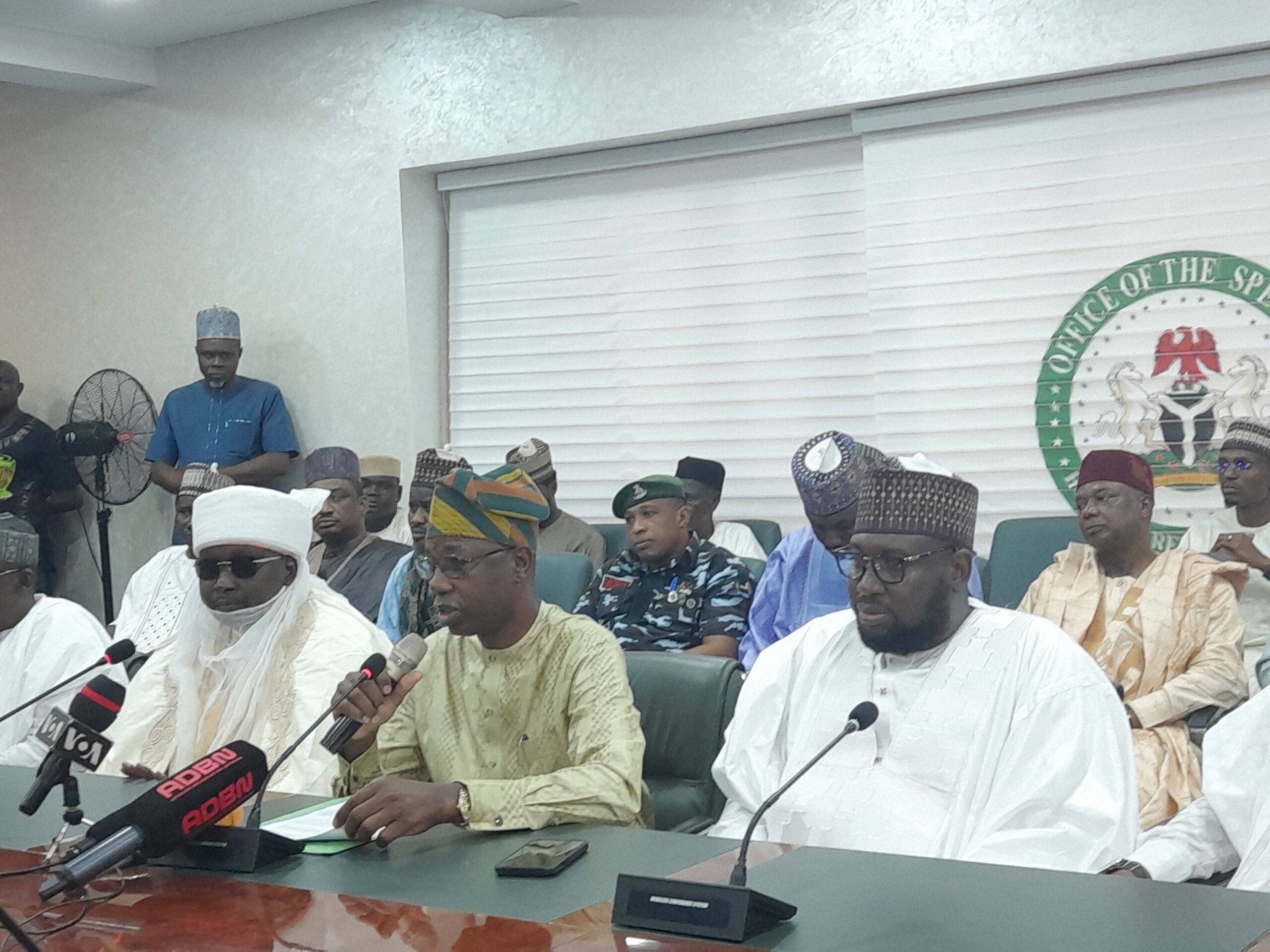News
Hope Rises As FG Says Port Harcourt-Aba Train Service To Start Operation

The Federal Government, on Saturday, said train services on the Port Harcourt to Aba route would commence operations by the end of March.
The Port Harcourt-Aba rail project is part of the larger Port Harcourt-Maiduguri railroad project initiated by former President Muhammadu Buhari’s administration.
The Managing Director, Nigeria Railway Corporation, Mr. Fidet Okhiria, disclosed this in Port Harcourt after leading a delegation to test-run the reconstructed of Eastern Narrow Guage Rail line.
He said workers were currently putting finishing touches on the tracks to ensure that full train operations could begin within the month.
“I am impressed with what I saw today, especially being able to ride the locomotive and wagon on the tracks.
“Last time we visited, we could not use the train because the contractor said it was not proper to run on the train due to imbalance of the tracks.
“The Minister of Transportation, Mu’azu Sambo, has directed that the Port Harcourt route be connected to rail as well as initiate the linkage of Onne Port,” he said.
Okhiria expressed confidence that the contractor would complete the ‘tampering’ of the railroad within two weeks, preceding the targeted three weeks for the train services to resume.
“We are pushing the contractor to make the track safe by deploying semi-automatic signalling of the machine points rather than manual operation.
“Despite resource challenges, the contractors are doing their best and our goal is to achieve this within the next two weeks.
“With this, we aim to commence passenger train services hopefully within March and fully resume transporting people from Port Harcourt to Aba by the end of March,” he assured.
The NRC boss said the project design team had started designing a rail track to connect the Port Harcourt-Aba railroad line to the Onne seaport.
He added that the corporation had begun collaborating with the port’s terminal manager and leading engineers to ensure a smooth project delivery.
“The initial design has been done and handed over to us. We look at it, make corrections and seek approval. Once approved, work will commence,” he added.
Regarding transport fares, Okhiria mentioned that due to the current high cost of diesel, commuters might have to pay higher fares than what was obtainable before.
He said if the NRC could not cover 100 per cent fuel cost, it would aim to generate at least 50 per cent from passengers to sustain operations.
“Additionally, we will assess the conditions of the roads with intent to cover at least 50 per cent of the road costs.
“The government is working with relevant security agencies to ensure adequate security of the rain line and the linkage of security devices from the trains to the control room.
“Communities should protect what the government is putting in place for us. We are striving to ensure that people who come on the train are safe,” he noted.
Okhiria cautioned traders against conducting business on the rail lines, as the trains would no longer slow down for them to remove their goods before passing.
He said that the trains were scheduled to run according to fixed times across all railroads in the country.
News
Finally, IGP approves hunger protests across Nigeria

The Nigerian police has finally approved the planned nationwide protests and outlined conditions for participants.
The Inspector General of Police, Kayode Egbetokun, revealed this on Friday while addressing journalists in Abuja.
He urged all groups planning to participate in the proposed nationwide protest to submit their details to the Commissioners of Police in their respective states.
The police boss said this was to ensure the protest was peaceful.
Egbetokun said, “We acknowledge the constitutional right of Nigerian citizens to peaceful assembly and protest.
“However, in the interest of public safety and order, we urge all groups planning to protest to provide necessary details to the Commissioner of Police in the state where the protest is intended to take place.
“To facilitate a successful and incident-free protest, they should please provide the following information: state the proposed protest routes and assembly points; expected duration of the protest; and names and contact details of protest leaders and organisers.”
The police boss said the information expected from the organisers also include measures to prevent hijacking by criminal elements, as well as key identifiers for possible isolation of potential troublemakers.
By providing the information, he said, the police will be able to deploy adequate personnel and resources to ensure public safety.
He said the police needed to know the specific routes and areas for the protest to avoid conflicts with other events or activities.
Mr Egbetokun said the police will “establish clear communication channels with protest leaders to address any concerns or issues that may arise; minimise the risk of violence, property damage, or other criminal activity.
“We encourage all protesters to cooperate with the police, obey the law, and adhere to global best practices for peaceful assembly to guarantee a safe and successful exercise of their rights.
News
Reps North-West Caucus Beg Youths, Citizens In The Region Not To Join Planned Protest

News
Reps Applaud FCT Minister, Wike On AICL Improved Revenue, Infrastructure

-

 News23 hours ago
News23 hours agoIwuanyanwu was a Heavyweight in all ramifications-Abaribe
-

 News22 hours ago
News22 hours agoTinubu, Southern Govs Mourn Iwuanyanwu
-

 News21 hours ago
News21 hours agoSokoto Governor, Aliyu’s Wife Holds Lavish Birthday As Guests Spray Dollar Notes On Her Amid Hunger, Hardship
-

 News21 hours ago
News21 hours agoProtest: President Tinubu In Closed-door Meeting With Traditional Rulers (Video)
-

 News23 hours ago
News23 hours agoIGP Orders DPOs, Their Men To Storm Vulcanizer Shops Ahead Of Planned Nationwide Protest
-

 News23 hours ago
News23 hours agoTinubu’s Presidency Is Failing Nigerians – Afenifere
-

 News18 hours ago
News18 hours agoNationwide protest: ‘Airport Is Filled Up, Govs, Senators, Reps, Ministers Traveling Abroad’ — Fayose
-

 Metro22 hours ago
Metro22 hours ago8 School Children Rescued In Lokoja Auto Crash







